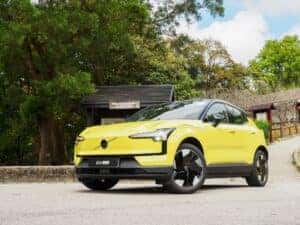
Volvo has recently made headlines by adjusting its ambitious goal of becoming an all-electric car manufacturer by 2030. While this may seem like a step back, it’s far from abandoning the dream of a sustainable future. Instead, Volvo is taking a pragmatic approach, focusing on plug-in hybrids (PHEVs) and hybrids to bridge the gap as the world catches up with the infrastructure and market demand for EVs. Here’s why this shift is not only necessary but also promising.
Volvo’s Strategy Shift
In 2021, Volvo boldly committed to phasing out internal combustion engines (ICE), including hybrids, and selling only fully electric cars by 2030. However, the road to electrification has proven to be winding and filled with unforeseen challenges. According to CEO Jim Rowan, hybrid powertrains can serve as a “solid bridge” for customers not for full electrification. This pivot aligns Volvo with other automakers who also emphasize hybrids as a transitional technology.
Why the Shift?
Several factors have contributed to this strategic adjustment. Firstly, market realities include slower EV growth, consumer hesitation, high tariffs impacting Chinese-built Volvo EVs like the EX30, and softer sales in key markets such as the U.S. and China. Additionally, there are infrastructure gaps, such as insufficient charging networks in many regions and uncertainties regarding regulations and subsidies. Finally, dealer feedback has played a significant role, with U.S. dealers expressing concerns about the viability of an all-EV lineup, with one dealer notably stating, “We will have to [stick with hybrids], or we will die.”
The Benefits of Hybrid and PHEV Focus
One of the immediate advantages of hybrids is customer readiness; many customers are not yet prepared to transition fully to electric vehicles, making hybrids a familiar and less daunting alternative. Additionally, hybrids offer flexibility, providing a practical solution while the EV infrastructure continues to develop.
PHEVs offer flexibility amidst the ongoing development of EV infrastructure. However, despite this tactical retreat, Volvo’s long-term vision remains firmly rooted in sustainability, ensuring they stay competitive while advancing cutting-edge electric technologies for the future.
Their commitment to electric commercial vehicles continues, however, as evident by a significant $208 million governmental investment in developing electric commercial trucks at Mack Trucks. This funding will facilitate the production of heavy-duty electric trucks and related powertrain components, marking a substantial step towards achieving zero-emission transportation.
A Hopeful Future
Volvo’s strategic shift doesn’t signal the end of their EV ambitions; rather, it’s a recalibration in response to current realities. The company’s continued investment in electric commercial vehicles underscores an unwavering commitment to a sustainable future. This balanced approach ensures that the company meets today’s demand while continuing to drive towards a more eco-friendly, electric future.
Learn more about Volvo’s hybrid and electric offerings at Volvo of Macon! We have many great electrified vehicles waiting for you to test drive, helping our great nation onto the road towards a greener future. Visit our dealership today to learn about our great specials, offers, and government electric incentives on your new EV!